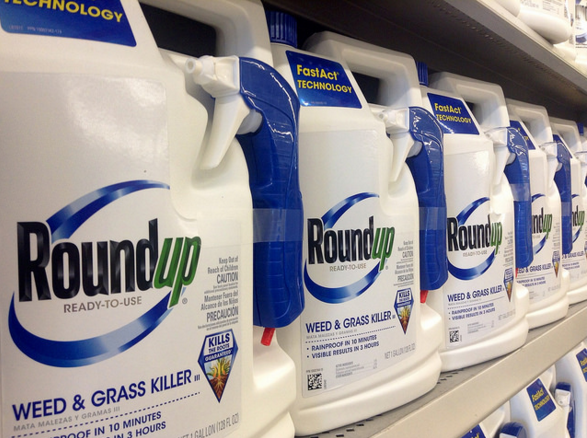-
Tips for becoming a good boxer - November 6, 2020
-
7 expert tips for making your hens night a memorable one - November 6, 2020
-
5 reasons to host your Christmas party on a cruise boat - November 6, 2020
-
What to do when you’re charged with a crime - November 6, 2020
-
Should you get one or multiple dogs? Here’s all you need to know - November 3, 2020
-
A Guide: How to Build Your Very Own Magic Mirror - February 14, 2019
-
Our Top Inspirational Baseball Stars - November 24, 2018
-
Five Tech Tools That Will Help You Turn Your Blog into a Business - November 24, 2018
-
How to Indulge on Vacation without Expanding Your Waist - November 9, 2018
-
5 Strategies for Businesses to Appeal to Today’s Increasingly Mobile-Crazed Customers - November 9, 2018
EFSA Declares Glyphosate No More Cancerous to Humans
After a thorough study, the European Food Safety Authority (EFSA) concluded that the pesticide glyphosate is unlikely to cause cancer. Although the EFSA has stated it is “unlikely that this substance is carcinogenic”, they have proposed a exposure threshold of 0.5mg/kg of body weight per day for accidental consumption.
Advertisement
The conclusion will be used by the European Commission in deciding whether or not to keep glyphosate on the EU list of approved active substances, and by EU Member States to re-assess the safety of herbicide products containing glyphosate that are used in their territories.
However, the EFSA has proposed a new safety measure that would tighten the control of glyphosate residues in food.
EFSA’s research findings appear to trump the conclusion this past March by the worldwide Agency for Research on Cancer (IARC), which listed glyphosate as “probably carcinogenic to humans”.
Under the IARC classification of substances, glyphosate is in Group 2A, which suggests there is “limited evidence” of carcinogenicity in humans and sufficient evidence of carcinogenicity in experimental animals.
Glyphosate was first used as the active ingredient in the herbicide Roundup, manufactured by United States agri-giant Monsanto, and is now made generically around the world.
“The news from EFSA comes at an important time, after much unfortunate and unwarranted confusion was caused by” the IARC report, Monsanto said in a statement on its website. The EFSA recommends a maximum dose of 0.5 milligrams per kilogram (kg) of body weight per day.
Glyphosate toxicity should be reduced by lessening its dose, but the substance is not likely to be genotoxic or damaging to DNA, according to the EFSA assessment. They said the toxic effects could be related to reactions with “other constituents or “co-formulants”. The group claimed that their petition asking the European Union (EU) to suspend the chemical’s approval for use was able to gather at least 1.4 million signatures.
“EFSA’s safety assurances on glyphosate raise serious questions about its scientific independence”, said Greenpeace policy expert, Franziska Achterberg. The EFSA peer review was carried out as part of the legal process required to renew authorisation of its use in Europe.
Advertisement
“It confirms the previous evaluations of glyphosate by regulatory authorities around the world, which have consistently concluded that the application of glyphosate poses no unacceptable risk”, Richard Garnett, chair of the Glyphosate Task Force, said in a statement.





























